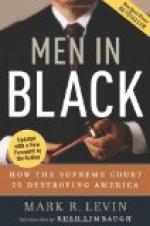Fortunately there are few attorneys who make appearances in court merely for the sake of adding another item on their bill to the client, and the real delay in reaching a case is due more to the confusion of administrative methods; until some more practical system is devised it will continue. Then witnesses and clients will not be loath to go to court.
The weary work is finished, all the tiresome facts have been gathered, and the rehearsals have been had. The play is written, the parts are cast. The disappointments and delays have been forgotten, the months of preparation have passed. At last the bell for the performance rings and the case is finally to be tried.
VIII
PICKING THE JURY
The clerk calls the case again for trial, not this time to inquire whether both sides are ready but to announce that it is about to begin. The lawyers, their assistants on both sides and their clients move forward to within the rail. There is a certain amount of commotion as they arrange their papers, their portfolios, law books, hats, and coats, and take their places at the counsellors’ table opposite the jury-box. In the dignified courts in this country this rather uncomfortable disposition of overcoats and hats is arranged in an adjacent room. The opposing parties in the battle to be enacted are now facing each other. Matters become at once more serious and formal. What was once avoidable is now inevitable.
The stage has still in a measure to be set. Twelve important actors are to be selected. The jury have not yet been chosen. The jury for the sake of comparison take the part of a Greek Chorus, a silent one it is true, until the final word is to be said. They nevertheless are as important and essential a part of the drama as the Chorus, without which in the background no tragedy or comedy was complete.
No curtain divides the theater and the arrangement of the stage goes on before the eyes of the spectators. The choice of the jury constitutes an interesting part of the performance. In this preliminary play the lawyers having important parts, their manner, bearing, tones of voice, their courtesy or discourtesy, repose or nervousness, are watched and unconsciously noted by the jurors. As the jury-box gradually fills, even the slightest idiosyncracy may have some effect on the outcome of the case.
Trial lawyers are careful of their actions even before the case is called to trial. It may be that among the spectators who have been sitting beside the lawyers in the back of the room, waiting for the case to be called, are those who may afterwards be called as jurors. Any affectation of manner or pomposity is quickly detected.
Experienced lawyers immediately they are observed by their tribunal, fall into the parts they are to play during the trial. One lawyer may be jovial and radiate a cheerful confidence. Another has a superior, detached, and academic air which promises a sarcastic cross-examination. Yet another takes on a blustering, brow-beating, intimidating manner, a kind of overmastering virility. Each kind has its own particular advantages, according to the nature of the parts to be played. The most efficient is the manner of the lawyer who is direct, business-like, and consistent with his own personality.




